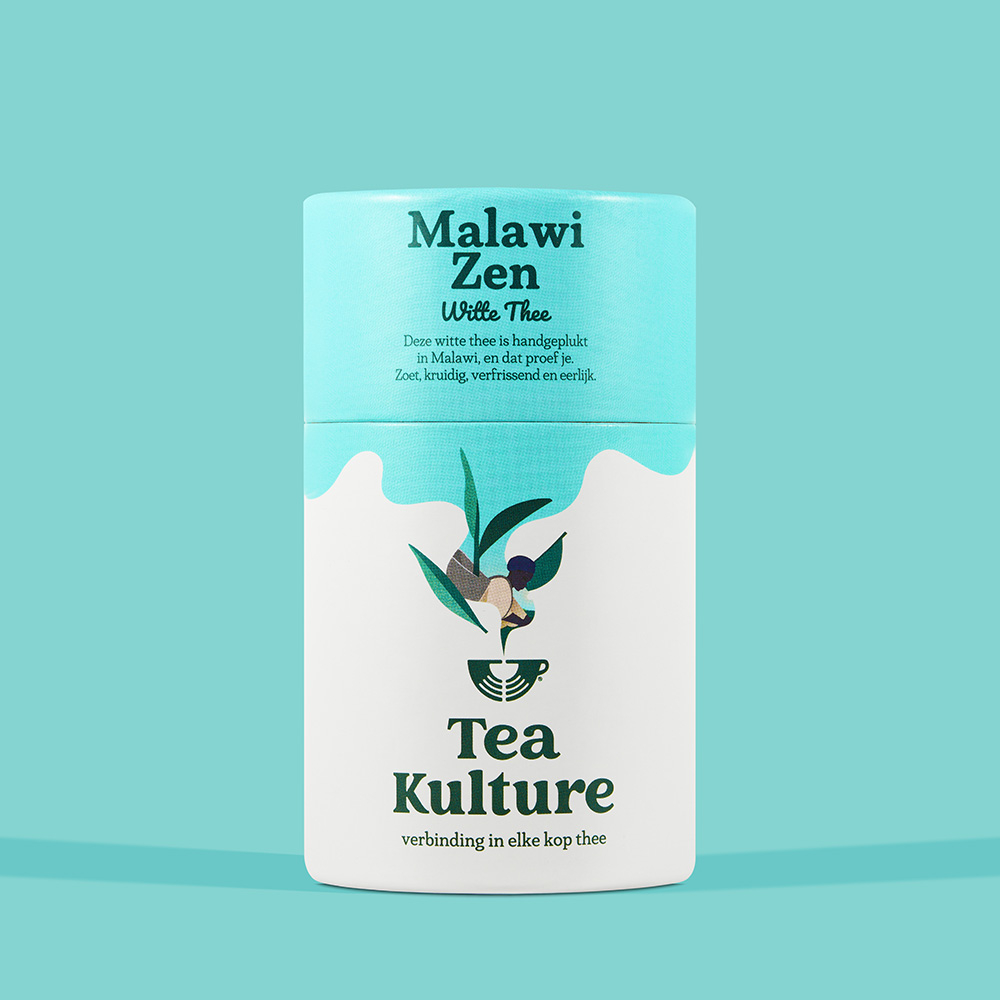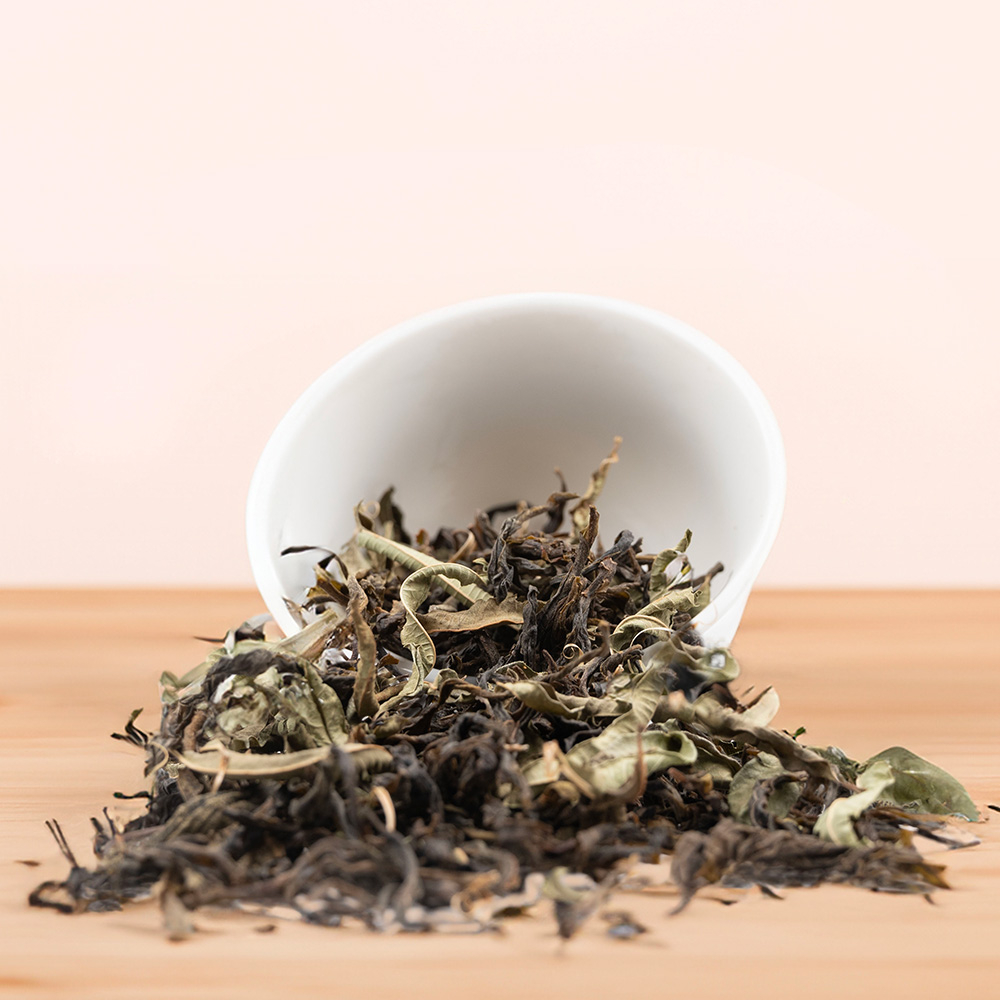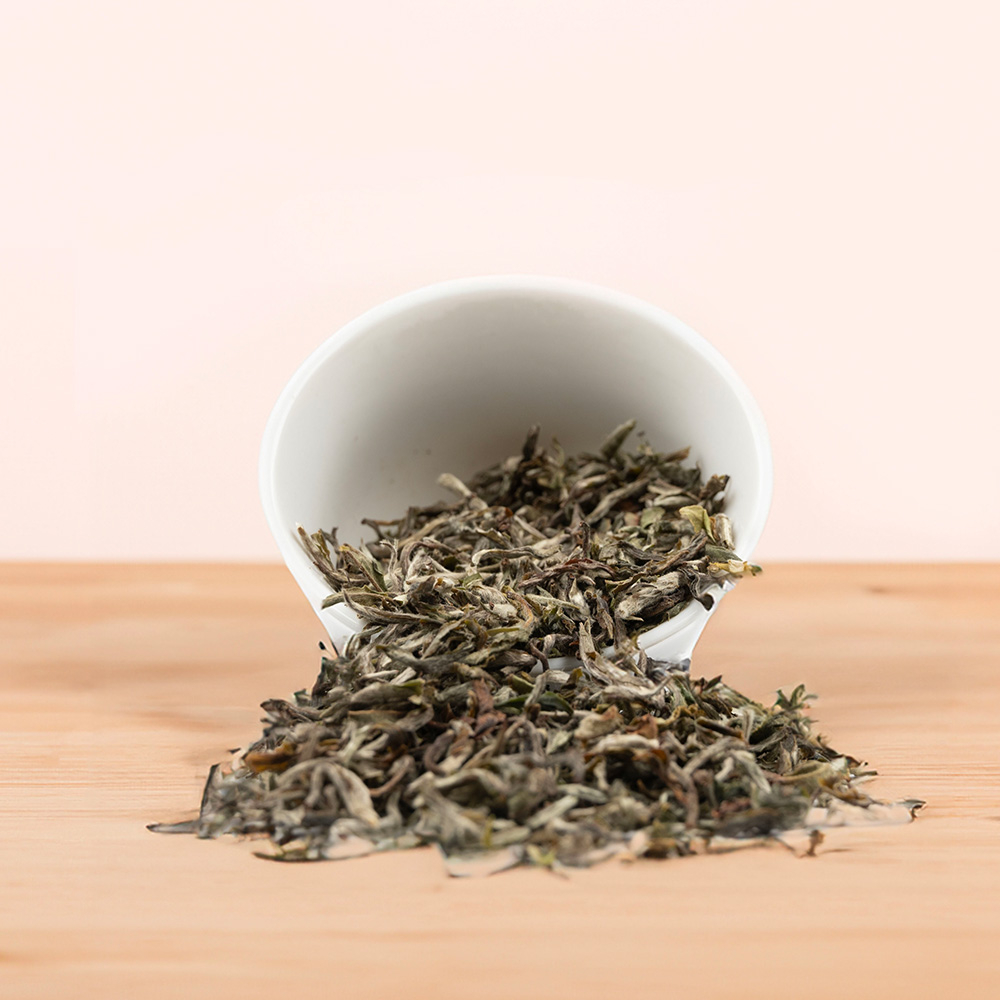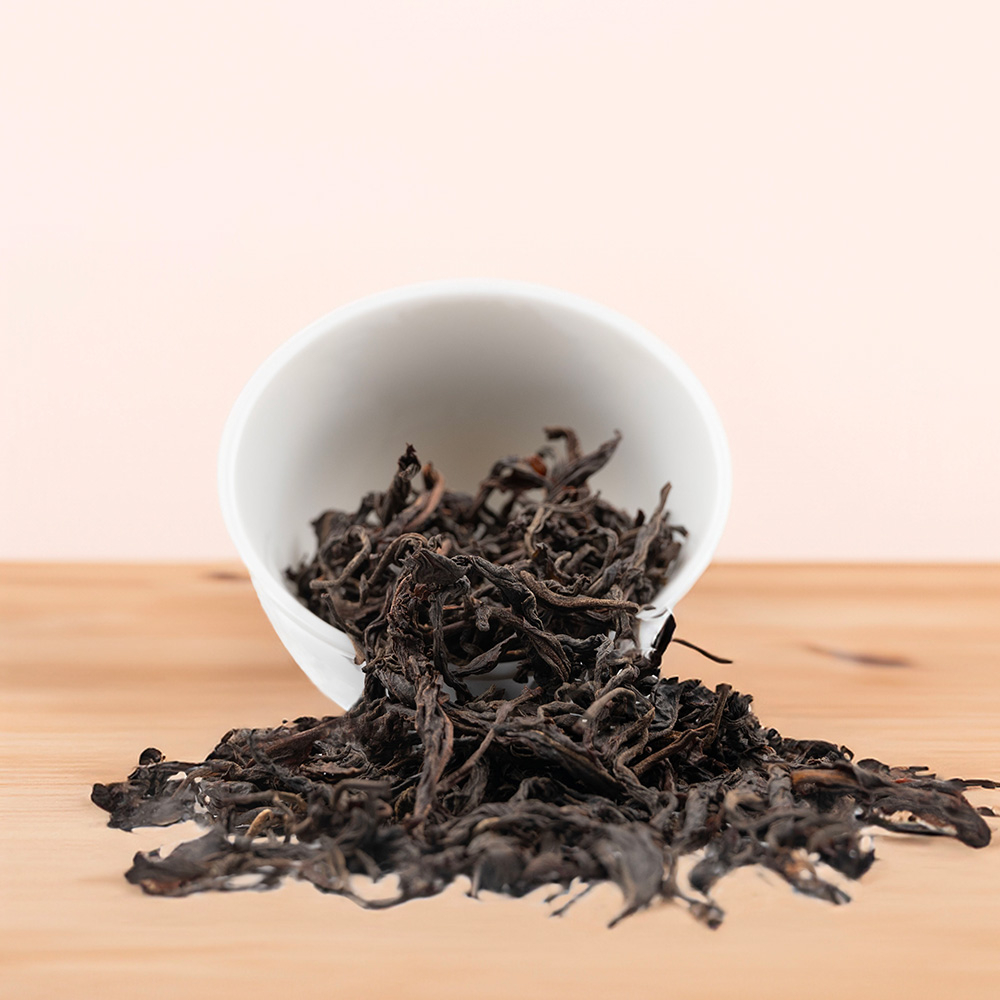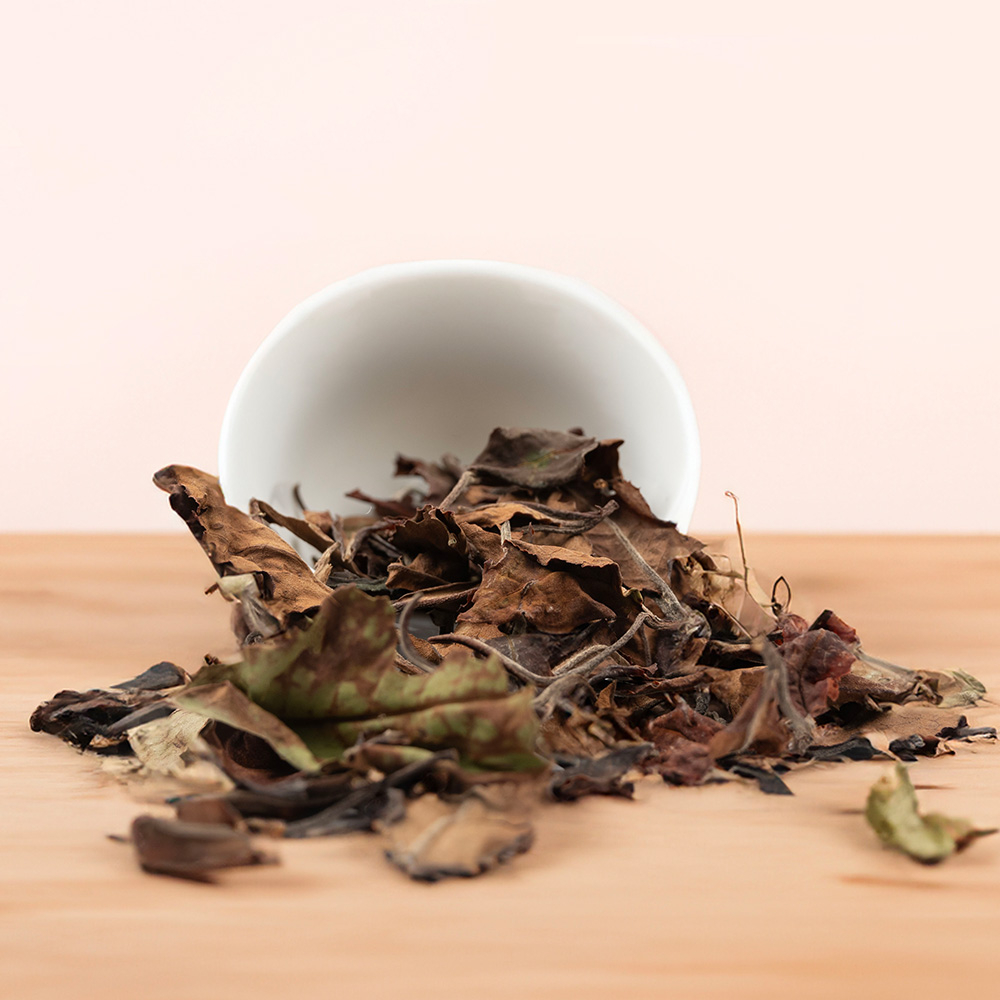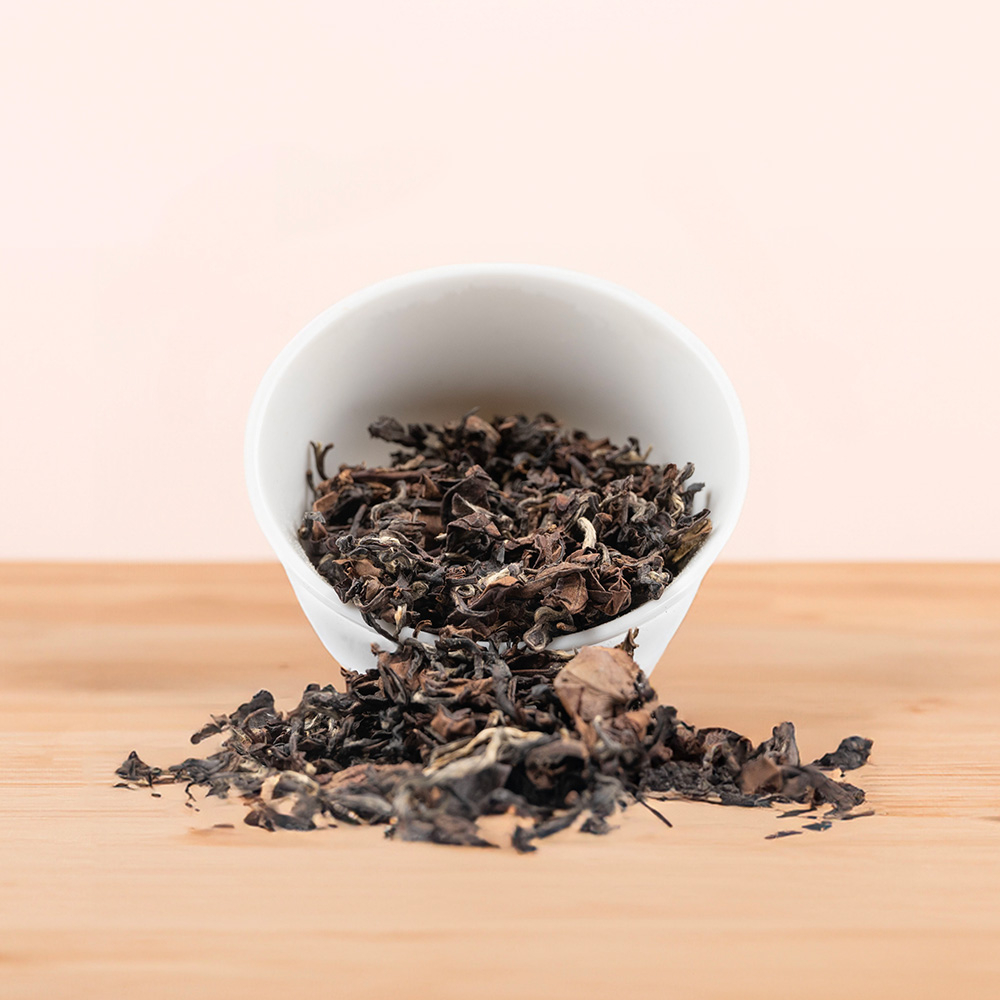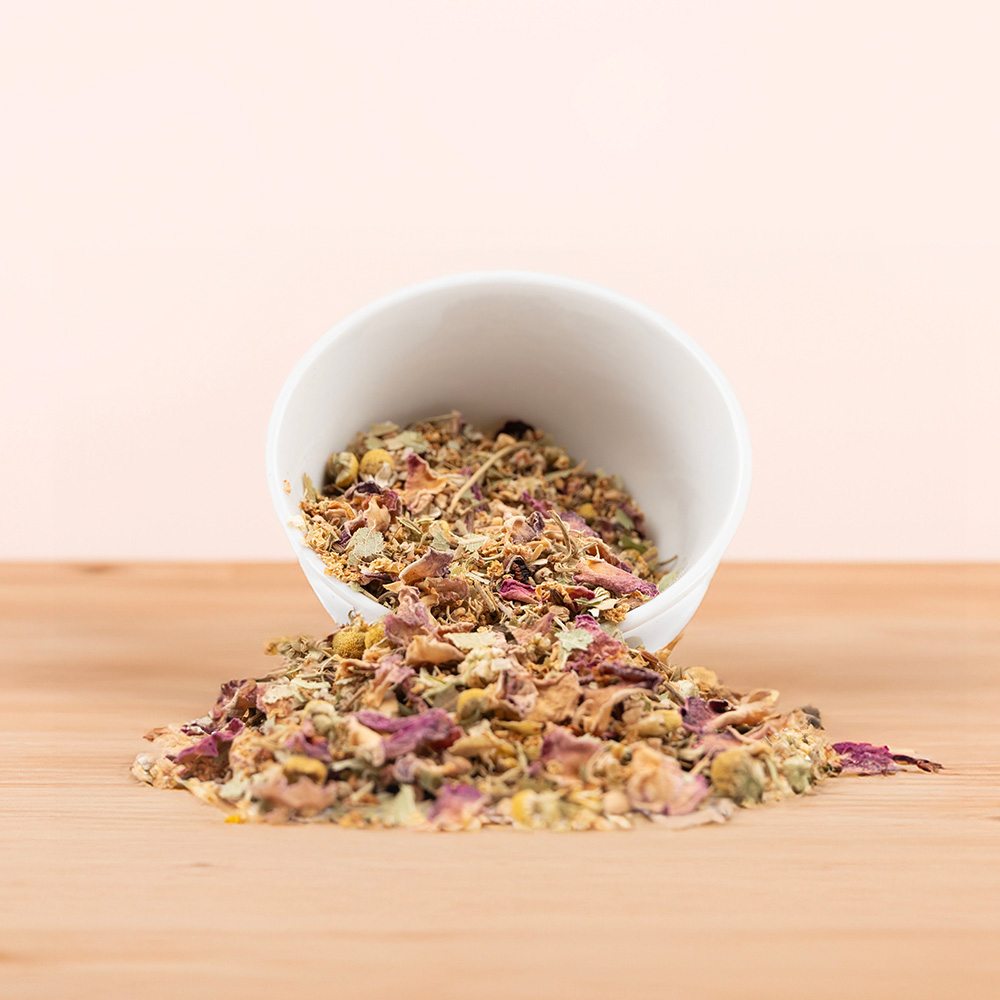More About Ganesha Green
Hand-crafted with care and sourced from the Himalayan foothills of Nepal, Ganesha Green offers a vibrant and invigorating cup with a distinctive profile.
It features a sweet, herbaceous aroma with notes of kelp, buttercream, toasted macadamia, and pine nuts, while the flavour delivers a refreshing mix of citrus, tropical fruits, and subtle marine undertones, finishing with a sweet, umami-rich aftertaste.
Brewing Tips
Quantity of tea leaves: 3 gram
Temperature of water: 80°
Infusion time: 3 minutes
Maximum number of infusions: 2 times
Begin by heating water to 80°C, the optimal temperature to bring out the invigorating flavours of Ganesha Green. If brewing the tea Western style, place about 3 grams of Ganesha Green leaves into your teapot or infuser (about 250 ml), ensuring there is ample space for the leaves to expand and release their essence. Pour the heated water over the leaves, fully covering them, and let them steep for 3 minutes for the initial infusion.
Enjoy up to two infusions of Ganesha Green, maintaining the water temperature at 80°C and slightly extending the brewing time for each subsequent infusion to fully appreciate the tea’s refreshing nutty, floral, and grassy profile. If you are brewing using the Eastern gong fu cha method, use around 5 grams of leaves for your gaiwan or small teapot (around 120 ml).
Regardless of the brewing technique, Ganesha Green will consistently deliver a delicious infusion. This tea pairs well with dried fruits, nuts, and savoury foods and snacks.
Read more about how to brew a delicious cup of tea.
Tasting Profile
Ganesha Green Tea delivers a refreshing and revitalising experience, infused with the healthful polyphenols characteristic of its Himalayan origin.
The dry leaves exude a sweet, herbaceous aroma with hints of kelp, toasted macadamia, and pine nuts. When brewed, the tea produces a light, clear yellowish-orange liquor. The infusion reveals a complex bouquet of sweet citrus, tropical fruits like grilled pineapple, and apple jam, with subtle notes of young bamboo shoots and marine undertones such as seaweed.
On the palate, Ganesha Green offers a clean, floral taste with a harmonious blend of buttercream, roasted nuts, and flowers, evoking the serene beauty of Nepal’s tea hills. Ideal for enthusiasts of high-quality Japanese sencha and Chinese Longjing (Dragonwell), Ganesha Green Tea finishes with a juicy, sweet aftertaste reminiscent of marinated nectarine, complemented by a delicate touch of umami.
Origin
Nestled in the foothills of the mighty Himalayas, Nepal’s tea gardens are a relatively recent yet significant addition to the global tea landscape. Although tea cultivation in Nepal dates back to the mid-19th century, it wasn’t until the 1950s that the industry began to take shape with the establishment of the Tea Coffee Development Board. Most of Nepal’s tea is grown in the eastern region, near the border with India’s renowned Darjeeling region, sharing similar climatic conditions but developing its unique identity.
Nepal’s teas, particularly those from high-altitude regions like Ilam, are celebrated for their distinctive floral notes, attributed to the region’s virgin acidic soil, young tea bushes, and micro-climate. The country is now gaining recognition for its orthodox teas, which offer a nuanced flavour profile distinct from its more famous neighbours.
At the heart of Nepal’s tea revolution lies the Kanchanjangha Tea Estate and Research Centre (KTERC), established in 1984 by Deepak Prakash Baskota. Inspired by the thriving tea gardens of Darjeeling, Baskota returned to his village of Phidim with a vision to elevate the local community out of poverty.
Situated between 1,300 and 1,800 metres above sea level, KTERC became Nepal’s first organically certified tea garden, thanks to Baskota’s pioneering approach to organic farming. The estate, located at the foot of Mount Kanchenjunga, the world’s third-highest mountain, benefits from pristine air, abundant rainfall, and fertile soil, producing some of Nepal’s finest teas.
KTERC is more than just a tea garden; it is a social enterprise that empowers local farmers, offering them ownership opportunities and a better quality of life through sustainable agriculture. Building on the legacy of KTERC, the Nepal Tea Collective was founded by Nishchal Banskota, son of Deepak Prakash Baskota, to bring Nepali teas to the global stage.
The Collective’s mission is twofold: to create a unique identity for Nepali tea, distinguishing it from its Indian and Chinese counterparts, and to establish a transparent, traceable supply chain that directly benefits the farmers, ensuring fair prices for farmers and promoting sustainable development in rural Nepal.
Read more about Kanchanjangha Tea Estate.
Production
The production starts with the careful plucking of tender two leaves and a bud from each tea bush. Freshly harvested, the leaves are swiftly transported to the factory to minimise oxidation.
In the factory, the leaves are placed in withering troughs briefly to prepare them for the enzymatic machine. This machine uses dry heat to reduce moisture and limit oxidation, preserving the vibrant green colour and imparting a smoky, nutty flavour to the tea.
Following this, the leaves undergo a brief rolling process to shape them and release essential oils. Unlike many green teas, Ganesha Green Tea is allowed to rest for 15-20 minutes before final drying, enhancing its buttery and toasty notes.
This meticulous process reflects the tea maker’s expertise, ensuring a complex and refined cup. Named after the Hindu deity Ganesha, symbolising wisdom and success, this tea is dedicated to Rita Baskota, the youngest supervisor in the tea garden, who exemplifies the qualities of sweetness and female leadership.
Read more about green tea in our blog.
Storage
Properly storing the Ganesha Green tea leaves is crucial to retain its freshness and flavor. The key is to protect them from the elements that can compromise their quality: air, heat, light, and moisture.
Read more about how to store loose-leaf tea.
You May Also Like

News, Promos and Occasional Surprises
That’s what you can expect when you sign up to our newsletter. And we’ll start with a welcome gift: 15% off your first purchase.
Your benefits at Tea Kulture

Free
Delivery
From €75 in BE and €100 in NL

Pickup Available
In Zonhoven and Hasselt (BE)

Fast
Shipping
Within 2-3 business days

Naturally Sustainable
In everything we do

Secure Payment
Multiple payment options

Free Delivery
From €75 in BE – €100 in NL

Pickup Available
In Zonhoven and Hasselt (BE)

Fast Shipping
Within 2-3 business days

Naturally Sustainable
In everything we do

Secure Payment
Multiple payment options


